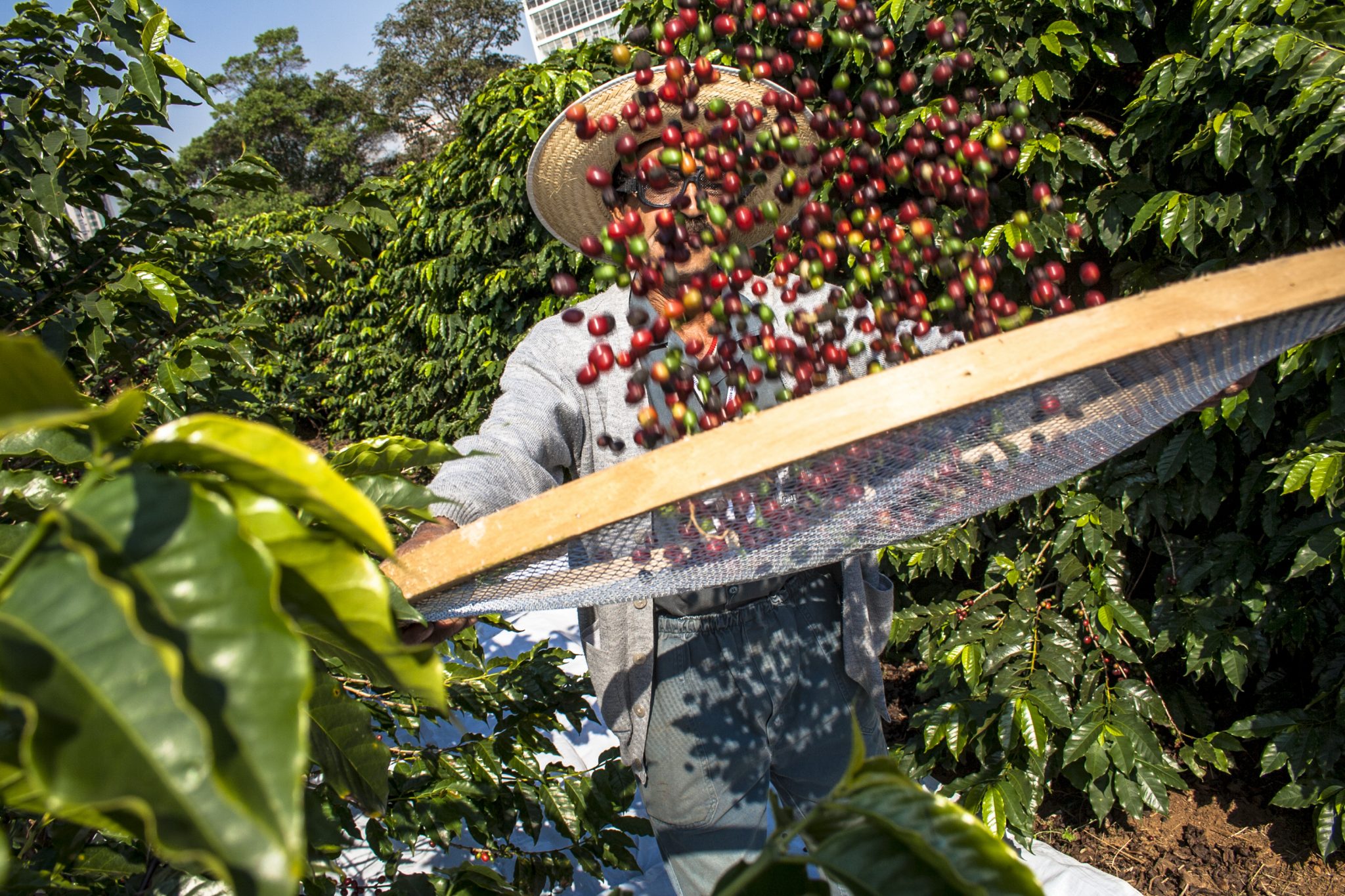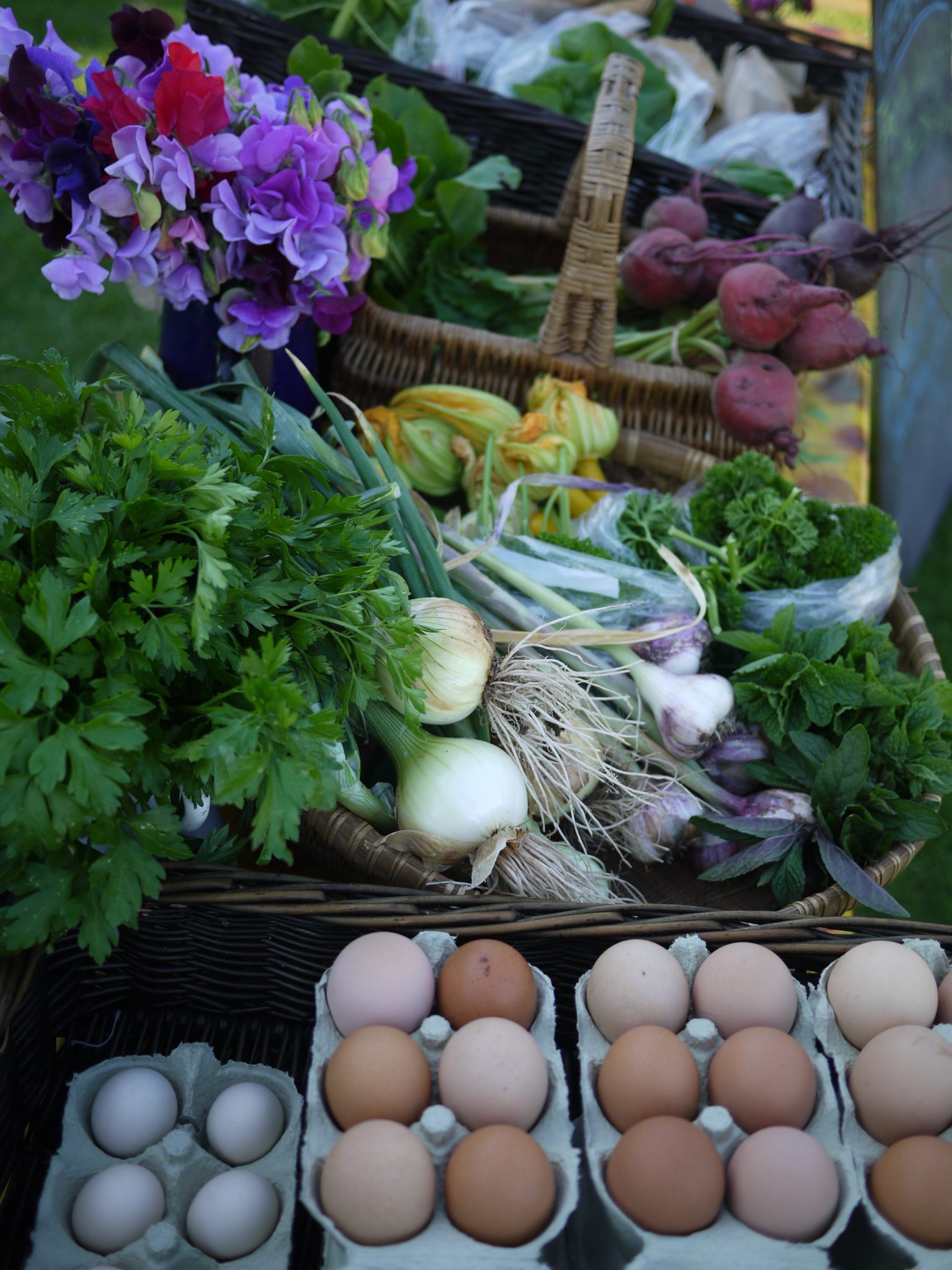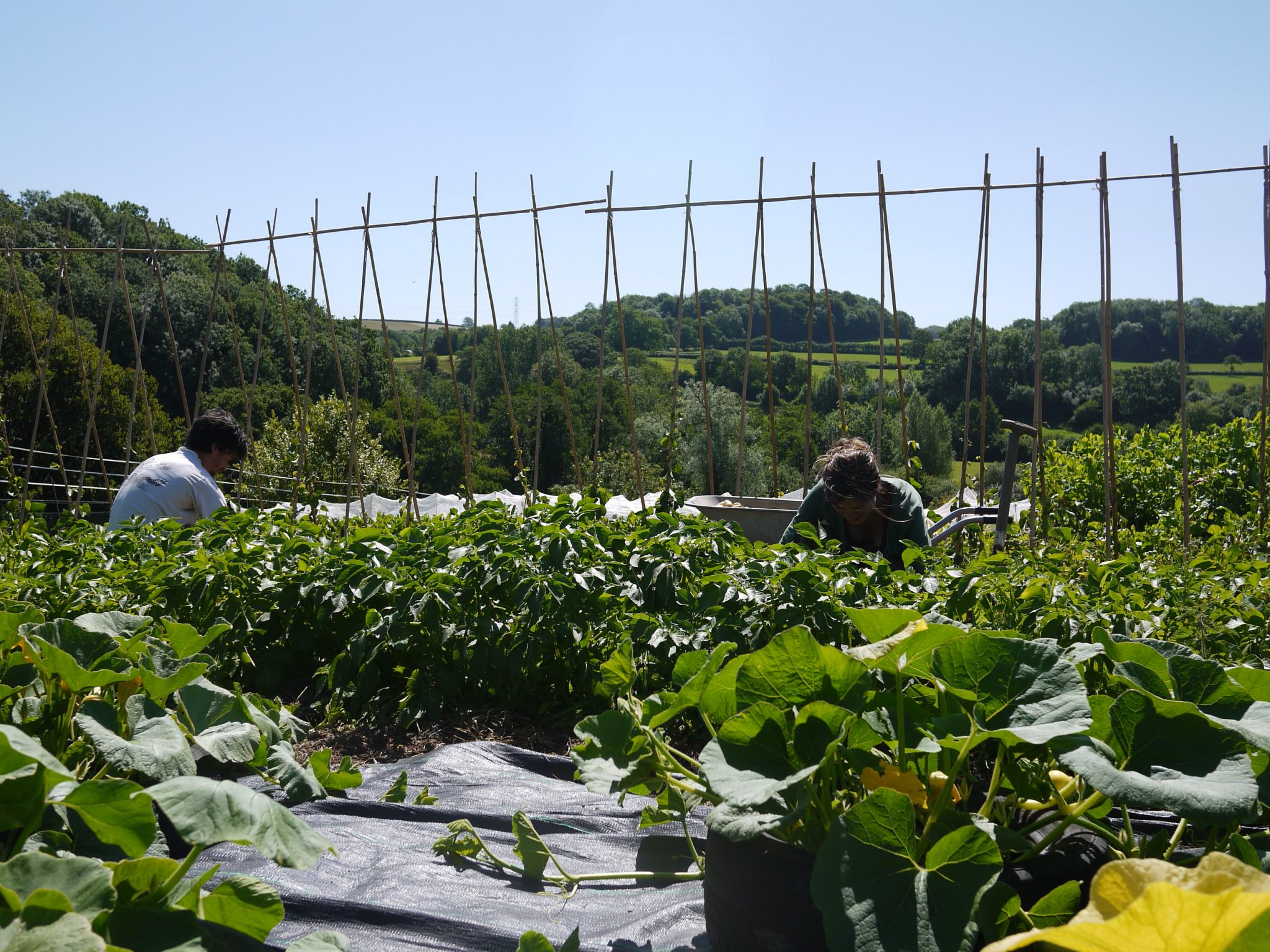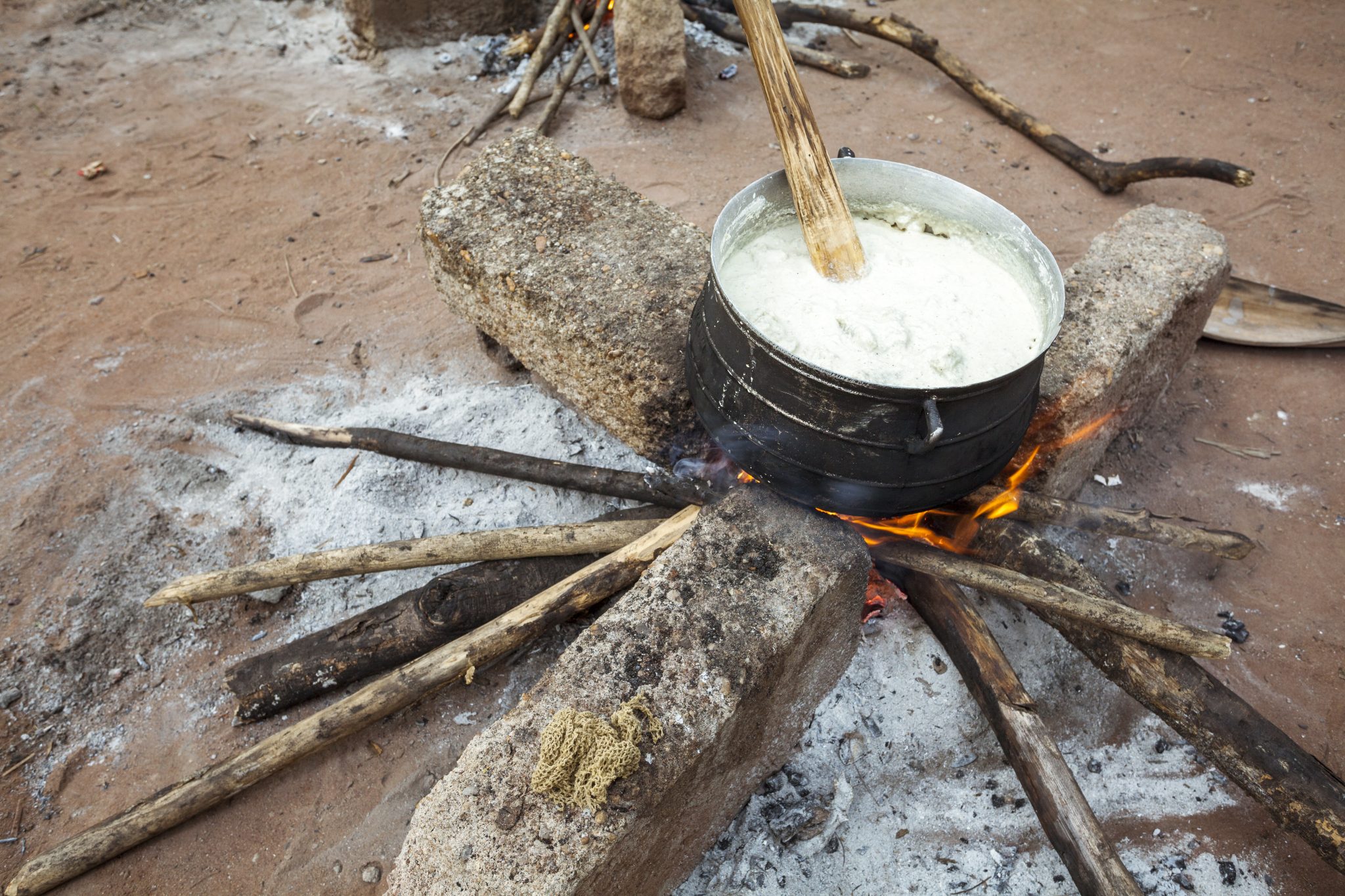World Environment Day – held each year on 5 June – aims to raise worldwide awareness of the challenges we face in ensuring the future of the planet. Organised by the United Nations since 1972, its theme in 2017 is ‘Connecting People to Nature – in the city and on the land, from the poles to the equator’.
Leading academic Dr Jeremy Haggar, head of the Department of Agriculture, Health and Environment at Greenwich University’s Natural Resources Institute, is the author of a recent study into small scale farmers and climate change.
The report was backed by TWIN, which works with 43 producer organisations representing over 300,000 coffee, cocoa and nut smallholders in 17 countries across Latin America, Africa and Asia. It evaluated ways in which major players in the Fairtrade market not only guarantee livelihoods in developing countries but are enabling producers to protect their local environments.
“The initiatives reviewed for this study mostly started out as corporate social responsibility programmes that supported general social and environmental projects,” says Dr Haggar. “Now, ensuring the sustainability of the ecosystems their businesses depend on is part of their business plan.
“Taylors of Harrogate is an organisation taking a lot forward – and the Twin climate change programme is working together with co-ops and the Solidaridad development agency in the Netherlands trying to bring together best practice for businesses wishing to engage with the producer base and make it become more resilient and resistant to climate change.”
Taylors of Harrogate, a family business based in Yorkshire, deals directly with coffee co-operatives in South America and Kenya. Its projects have directly enhanced local environments by reducing soil erosion and flooding and improving water conservation.
Related: Meet ten co-ops who are connecting us with the planet
It has also played a key role in combating climate change; supporting families and communities by providing food and enhancing livelihoods; and promoting environmental education. Taylors also run a small grants scheme to suppliers to support the costs of Fairtrade certification, which is essential to long-term sustainability.
Cafédirect, which brought the first Fairtrade coffee to the UK, works with more than 40 producer organisations in 14 countries and reinvests a third of its products with producer communities – in northern Peru it has helped coffee suppliers in small villages lessen the impact of deforestation by investing in tree planting and other community projects.
In other developing countries, producers are learning how co-operative ways of working can help both them and their local environment.
Dr Hagar has recently been working with coffee farmers and community organisations in Sierra Leone, where Fairtrade is still developing. “They are still learning about farming as a social business and it is a skill set change,” he says.

“Once you start getting bigger, informal communication does not work so well and the opportunities for misunderstanding get bigger. It can happen because there are very few with the skills to run the organisation. The Fairtrade labelling and certification process helps with a set of rules to manage the relationship between membership and hierarchy.
“It’s the only structure trying to address that, and the link between membership and organisation ensures the supply market with the quality of product it demands. It’s a big learning curve for farmers and organisations.
“Consistency of supply means you can see who is paying more for social value. This is particularly true in the UK which is the biggest Fairtrade market in world. The Fairtrade Foundation has done a good marketing job and is very effective in selling content to big retailers, but co-ops develop awareness themselves.
“In the beginning all the consciousness was developed by NGOs working with producer groups, but it is now an inherent part of the philosophy Within Latin America there is a strong environmental movement – and also to a degree in Africa.”
More than 80% of Fairtrade goods are provided by small-scale farmers whose contribution has been key to the phenomenal rise of the Fairtrade market – most significantly in the UK where its market value is heading for £2bn every year. The bigger the market, the more which can be done to protect the environment.
“Growing the market is the most fundamental thing that’s been substantially advanced in the UK,” says Dr Haggar. “If it could be replicated in Europe and North America that would be transformational. It’s already starting in places like Mexico, Brazil and South Africa. It’s about building from success in a broader range of countries to develop.”
Related: How you can join a co-operative solution for Real Farming
He believes future initiatives should be closely aligned with the environmental needs of producer organisations, with a long-term commitment from the alliance of companies and producer organisations. And he says greater impact can be achieved through alliances between organisations who recognise the threat to the supply chain from environmental degradation – and the steps they must take to address that.

“Corporate Social Responsibility is about doing the right thing, but increasingly it is part of a central business plan because of concerns about supply – and the realisation that climate change and degradation of the environment affects consistency of supply.
“Companies see sustainability as part of ensuring supply of cocoa and coffee into the future. Climate change, for example, is very difficult to slow down per se, but it is one area where action could improve and protect local environments.”
Much of the focus on protecting the environment may be in developing countries, but closer to home there are initiatives like the Ecological Land Co-operative. Based in Sussex, it was set up to address the lack of affordable sites for ecological land-based livelihoods in England – and bridge the disconnect between the combined cost of land and rural housing, and the income that is usually derived from sustainable rural livelihoods.
In the past few years it has carried out research into the future of eco-agriculture in the UK and purchased sites in East Sussex and Devon with plans for several more by 2020.
“Sustainable rural livelihoods – such as small-scale ecological food production – protect the environment and reduce greenhouse gas emissions by reducing fossil fuel use,” says operations manager Sonia Sinanan.
“Such businesses help build a vibrant, living countryside in which people flourish alongside our cherished landscapes and natural biodiversity, and have a important role to play in ensuring food and energy security. They also provide employment, access to local food and crafts, and educational opportunities for urban visitors, helping to maintain rural skills and to improve ecological literacy.”

The ELC’s mission, she says, is to increase access to land for such livelihoods.
“As well as land, we provide smallholders with permission to build their own sustainable home, and with utilities and road access. Our model allows us to keep costs low, both through buying larger sites at a lower price per acre, and through distributing the cost of infrastructure, planning applications and subsequent site monitoring across a number of smallholdings.”
Not everyone can live close to the land, but urban consumers are also being encouraged to do their bit for climate change. Co-op Insurance recently announced a new carbon offset programme, which means for each motor policy it will offset 10% of CO2 emissions in the first year by supporting the provision of cookstoves in Ghana that are up to 50% more efficient.
The cookstoves replace less efficient cooking methods such as the open-burning of wood, coal or animal dung which cause more indoor pollution and release more greenhouse gases such as carbon dioxide and methane, as well as contributing to deforestation through the need for higher levels of wood for charcoal fuel.
Since 2006 it has been offsetting customer emissions through its specific ‘Ecoinsurance’ motor policy, through which Co-op customers have offset more than a million tonnes of CO2 to date.

For each home policy, Co-op Insurance is also offsetting 10% of customers’ home energy CO2 emissions in the first year by helping to fund LifeStraw water filters that provide safe drinking water to families in Kenya, require no electricity, and mean there is no need to boil water to purify it. This protects families from waterborne diseases like typhoid, cholera and diarrhoea – the third leading cause of death among children and adults in Kenya.
The Co-op also sources 99% its electricity from renewable sources (including its own wind farms) and has reduced its direct carbon footprint by 43% since 2006.
“We were one of the first businesses to recognise and respond to the impacts of climate change,” says Mark Summerfield, chief executive of
Co-op Insurance.
“Since then we have reduced our greenhouse gas emissions from our operations, purchased renewable electricity and we are now offering a carbon offset as standard on all home and motor policies in the first year, at no extra cost to our customers, and are making sure to choose offset projects that are checked to a stringent standard and have added benefits in the developing world, whether that’s contributing to the local economy, protecting people’s health, or reducing deforestation.”